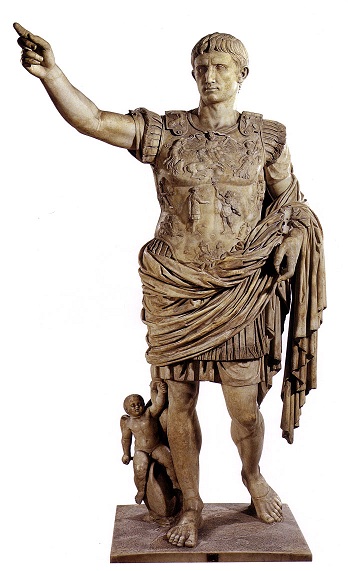Biblical scholars argue that Lukes story of the Nativity was specifically fashioned to present Jesus as a replacement of Ceasar Augustus:

“In Luke’s birth story, the key to seeing its political meaning is Roman imperial theology, which includes the divine conception of Caesar Augustus, the greatest of the Roman emperors and ruler when Jesus was born. He was conceived by the god Apollo in the womb of his mother Atia. His titles included “Son of God,” “Lord,” “Savior,” bringer of “peace on earth.” Inscribed on coins and temples, the public media of the day, they continued to be used by most emperors after Augustus.”
“Thus there was already a “Son of God,” “Lord,” and peace-bringing “Savior” in the world in which Jesus lived and in which early Christianity emerged. Roman imperial theology is the historical context for understanding the use of this language.”
“Luke’s story of Jesus’ birth… deliberately counters and challenges Roman imperial theology. It includes divine conception, and thus Jesus, not Caesar, is the “Son of God.” Early Christians saw in Jesus the alternative to an imperial world based on injustice and violence.” (1)
Marcus Borg, world renowned scholar, former president of the Anglican Association of Biblical Scholars.